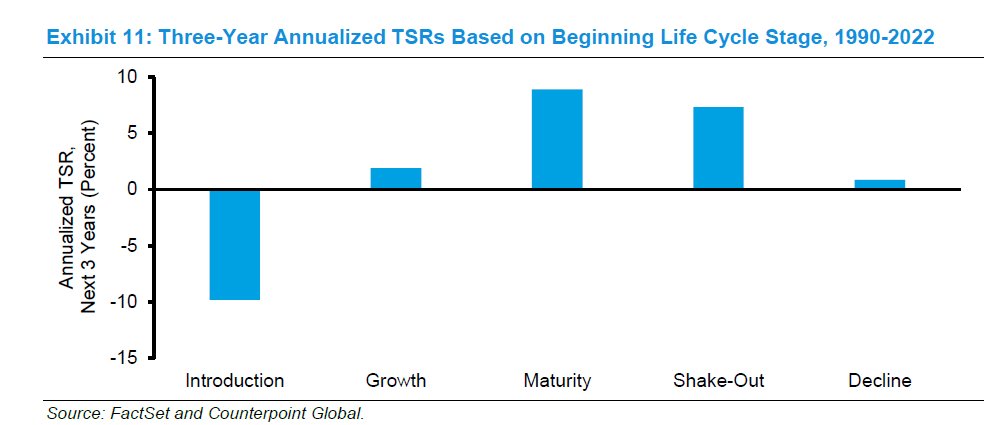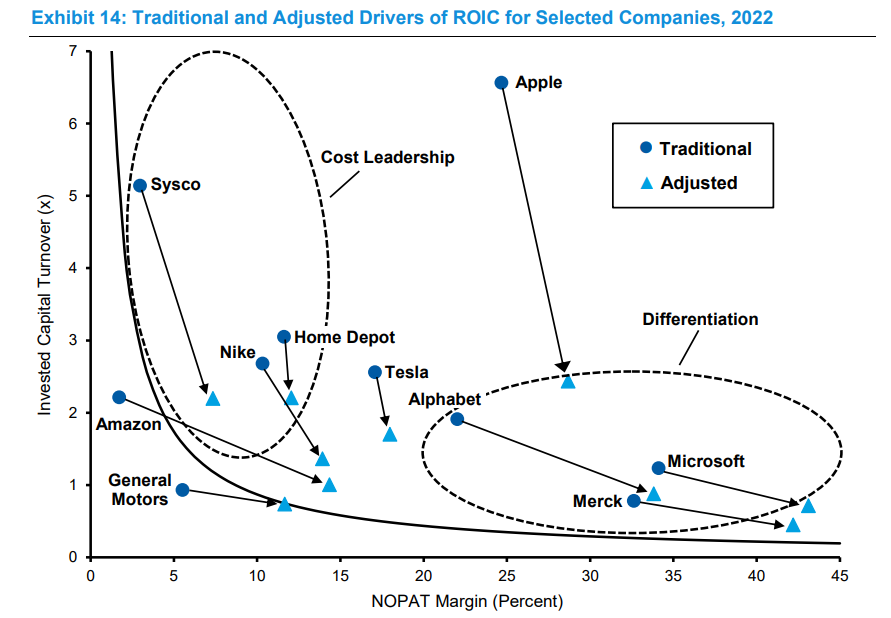This was me, one year ago. After years in allocator seats, I joined a friend who was spinning out to set up his own fund. Strong team, track record, locked-up capital.
It was so much harder than I expected it to be.
It was so much harder than I expected it to be.
First off: I was so enamored with the idea of helping to build something that I overruled my gut. I knew I wasn't a good fit for a sales role.
My friends know I'm more comfortable in the basement of the NY Public Library than bantering with a group of strangers. It is what it is.
My friends know I'm more comfortable in the basement of the NY Public Library than bantering with a group of strangers. It is what it is.
Bad idea. Shortly after COVID hit I was let go.
I was angry. Resentful. But in the back of my mind I knew that I hadn't been a good fit.
Today I can see the positive that came out of it.
I was angry. Resentful. But in the back of my mind I knew that I hadn't been a good fit.
Today I can see the positive that came out of it.
Now for any of you thinking about starting their own funds, this was the tweet that triggered my memory:
https://twitter.com/SuperMugatu/status/1376571643330445317
Dan is right. It's insanely hard. I've seen people much smarter and harder working than me try and not succeed.
There are some subtle dynamics at play that can be difficult to understand from the outside.
There are some subtle dynamics at play that can be difficult to understand from the outside.
Allocators are often understaffed and swamped with pitches. They have their guard up.
Think of it like pitching a VC. @pmarca won't talk to you unless you can get an introduction. Think of your network as edge that you must cultivate to succeed.
Think of it like pitching a VC. @pmarca won't talk to you unless you can get an introduction. Think of your network as edge that you must cultivate to succeed.
https://twitter.com/NeckarValue/status/1376618697406746624
Picking stocks is a commodity. You may think your work is special. Perhaps it is. But allocators have listened to the same pitch a hundred times.
Describing your process violates a cardinal rule of storytelling: "show, don't tell." Figure out how to show, how to be interesting.
Describing your process violates a cardinal rule of storytelling: "show, don't tell." Figure out how to show, how to be interesting.
I hope you don't think Howard Marks writes those letters for fun?
Or that Dalio puts out Bridgewater's Daily Observations because he likes to keep you informed?
Or that Dalio puts out Bridgewater's Daily Observations because he likes to keep you informed?
Recognize the difference between the organization and the individual you're pitching.
Unfortunately you are a bad career risk. Allocators don't get a big bonus for picking a great fund that represents a tiny sliver of the portfolio.
Unfortunately you are a bad career risk. Allocators don't get a big bonus for picking a great fund that represents a tiny sliver of the portfolio.
But if you blow up? They'll have to answer for that. Nobody likes to lose money. Or look stupid.
You are asking someone to go out on a limb for you - despite your lack of track record, team, infrastructure. Unless you can build trust, your product has no chance.
You are asking someone to go out on a limb for you - despite your lack of track record, team, infrastructure. Unless you can build trust, your product has no chance.
To me, it all comes down to what you're trying to achieve. Are you building a business or a practice?
What is your measure of success? Building wealth or practicing your craft?
What is your measure of success? Building wealth or practicing your craft?

Blackstone is a business. They allow allocators to satisfice: to buy a product that reliably does the job and won't get you fired.
You can charge a premium for that and it scales nicely. It's what you want as a shareholder.
blackstone.com/press-releases…
You can charge a premium for that and it scales nicely. It's what you want as a shareholder.
blackstone.com/press-releases…
My old boss wanted to run money his way: concentrated, flexibility in equities, credit, private assets. No shorting.
It was an expression of his style and personality. It didn't maximize his wealth. It wasn't what most customers wanted. But it allowed him to practice his craft.
It was an expression of his style and personality. It didn't maximize his wealth. It wasn't what most customers wanted. But it allowed him to practice his craft.
I find that investors avoid analyzing their own businesses the way they would an investment.
I think it's because they like to think of themselves as artisans practicing a craft. They feel they do something unique.
I think it's because they like to think of themselves as artisans practicing a craft. They feel they do something unique.
The disconnect is when you confuse the two. When you act like an artisan but expect the results of a business.
I shared what little advice I have here:
neckar.substack.com/p/attempting-t…
I shared what little advice I have here:
neckar.substack.com/p/attempting-t…
Perhaps the best advice: leverage the new world of fintwit and learn from people in the trenches:
@SuperMugatu
@GavinSBaker
@NoonSixCap
@DennisHong17
@HaydenCapital
@ArtkoCapital
@1MainCapital
@AltaFoxCapital
and many, many others
@SuperMugatu
@GavinSBaker
@NoonSixCap
@DennisHong17
@HaydenCapital
@ArtkoCapital
@1MainCapital
@AltaFoxCapital
and many, many others
Some favorite writing on the topic:
@GrahamDuncanNYC's "Letter to a friend who may start a new investment platform"
grahamduncan.blog/letter-to-a-fr…
@GrahamDuncanNYC's "Letter to a friend who may start a new investment platform"
grahamduncan.blog/letter-to-a-fr…
Robert Vinall's "Thoughts on Becoming an Independent Fund Manager"
"It is not a roadmap to riches for the impresario, though a route to independence for the talented manager. That is in any case the only type who should be entering this industry."
rvcapital.ch/post/some-thou…
"It is not a roadmap to riches for the impresario, though a route to independence for the talented manager. That is in any case the only type who should be entering this industry."
rvcapital.ch/post/some-thou…
Great thread highlighting the different new roles and skills that come with independence.
"You must be a great stock picker, portfolio manager, manager of internal relationships, and a cultivator of external ones."
"Analyst, PM, boss, partner, client"
"You must be a great stock picker, portfolio manager, manager of internal relationships, and a cultivator of external ones."
"Analyst, PM, boss, partner, client"
https://twitter.com/pmje73/status/1380164072780484609
And of course MIT's @joelmcohen
"None of these managers worked at a name-brand firm. All launched their fund before the age of 35. Only one had a “pitchbook.” Many started out with <$5 million at the outset."
joelmcohen.medium.com/illuminating-t…
"None of these managers worked at a name-brand firm. All launched their fund before the age of 35. Only one had a “pitchbook.” Many started out with <$5 million at the outset."
joelmcohen.medium.com/illuminating-t…
• • •
Missing some Tweet in this thread? You can try to
force a refresh














